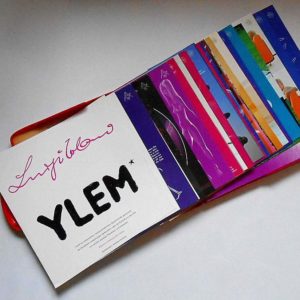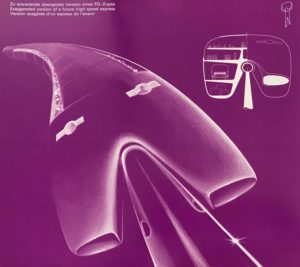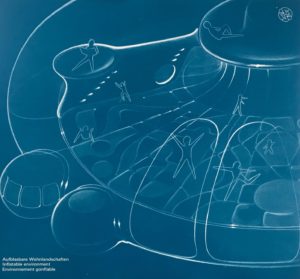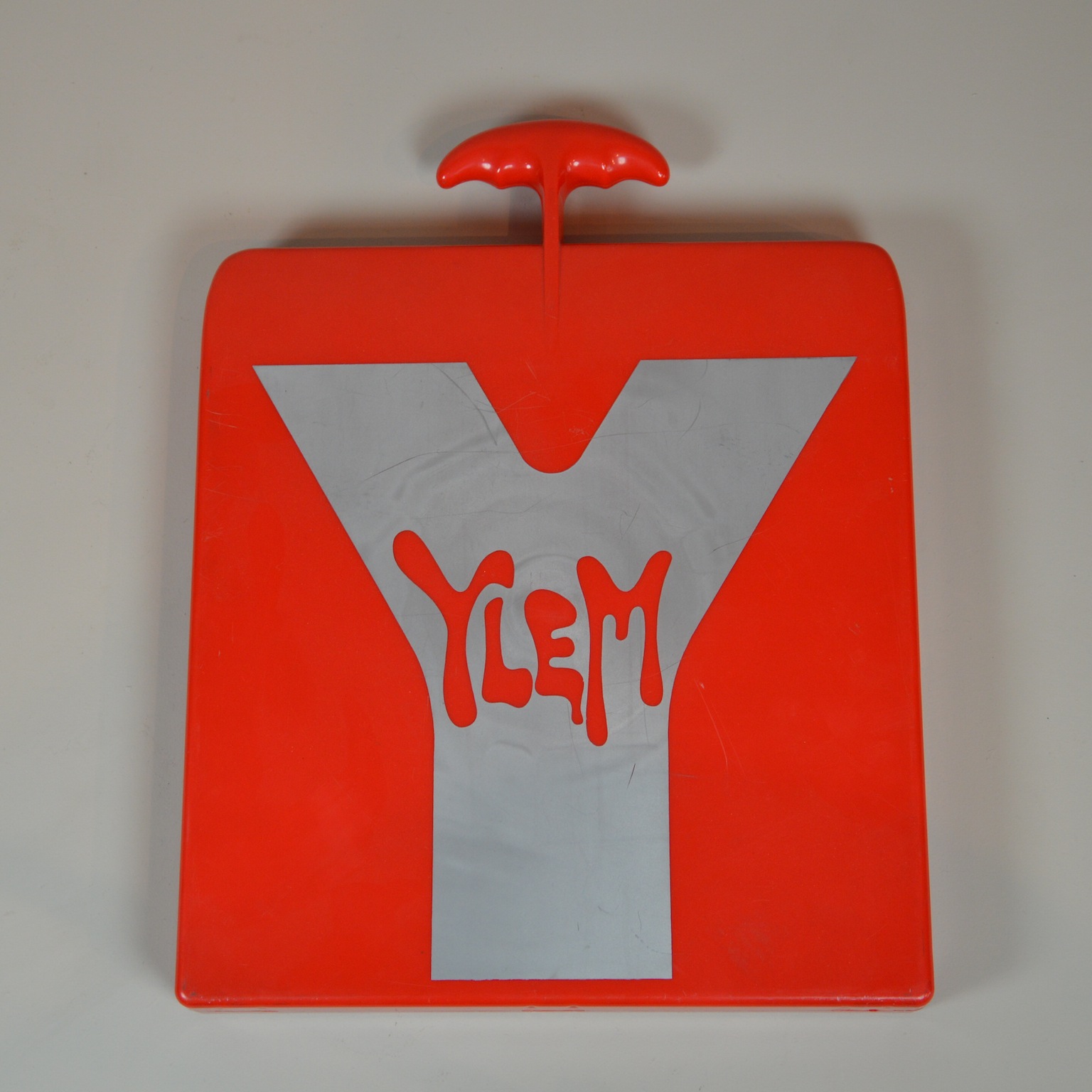Author: Evelyn Meynard
Published in 1971, Ylem is a manifesto that contains a collection of designs and texts by the German industrial designer Luigi Colani, held in the Cooper Hewitt National Design Library .

Individual designs in the portfolio Ylem, by Colani.
The title of the book refers to a term from quantum physics coined during the 1940s, meaning the substance from which all matter originated after the Big Bang. The manifesto is an exceptional hybrid artifact composed of 120 loose plates contained in a red box with an ergonomic handle. The Pop-Art inspired plastic case is characteristic of design at the time with its bright color, material construction, inventive design, and psychedelic typeface.
Divided into sections, the print plates include illustrations of drafts, plans, and sketches, as well as photographs. The designs cover a wide spectrum of topics and speak of future city life, housing, and urban planning, travel speed and efficiency, nature-inspired and ergonomically conceived designs, and extremely original possibilities for human dwellings in space or underwater.

Drawing for a high speed express train
Colani conceived of the portfolio during an eight-week stay in bed after a back injury when he set himself to explain his philosophy and vision of the future. Born in Berlin in 1928, Colani had an unusual training as a designer. He first studied sculpture and painting at the Berlin Kunstakademie, and then in 1947, philosophy and aerodynamics in Paris. In a career that spans over 60 years, he has created more than 5,000 designs that include a wide array of industrial objects. However, he has been most distinguished in automobile, aircraft and aeronautic design.

Drawing for an inflatable environment
Colani has been extraordinarily prolific and always innovative, exercising his practice with unrestrained passion. The portfolio came to light in 1971, by the end of the rebellious and tumultuous 1960s, a historical era in which vital questions about humanity’s place on earth were beginning to arise. The manifesto is a compilation of the vision and philosophy of a designer determined to explain his critical views of society, and to offer solutions to the future of humankind.[1] The designer’s four fundamental axes converge in this remarkable book: his strong vision, his designs inspired by nature, his scientific and technological knowledge, and his futuristic foresight.
Evelyn Meynard is a graduate student in the History of Design and Curatorial Studies Program at Parsons School of Design.
[1] Bangert, Albrecht, Colani: The Art Of Shaping The Future (New York: Princeton Architectural Press, 2005), 72.

2 thoughts on “A Maverick’s Futuristic Manifesto”
Michael Corris on April 9, 2019 at 11:04 am
What a wonderful “object”! I am reminded of the publication, “Aspen”, which also diverged from the convention “codex” book format. Colani’s “Ylem” is a beautiful example of how such a gesture can be extended. I imagine that the container is an example of the most advanced vacuum forming technology of the time. As an object, it is far more materially coherent and satisfying than “Aspen”, because it was designed to be a totality rather than an aggregation of individual components. Thank you Evelyn for bringing this object to light!
Curator infor on January 21, 2020 at 6:02 pm
Check out more amazing designs by Luigi Colani at the online museum:
http://www.colani.org